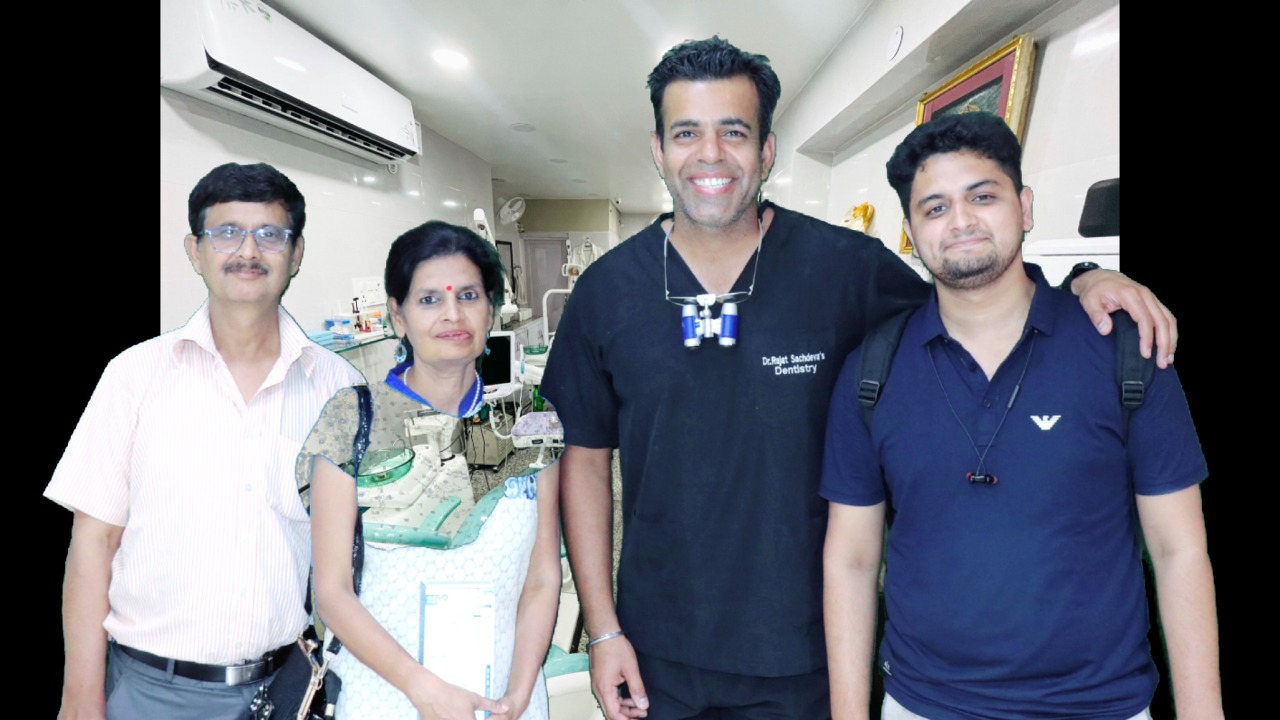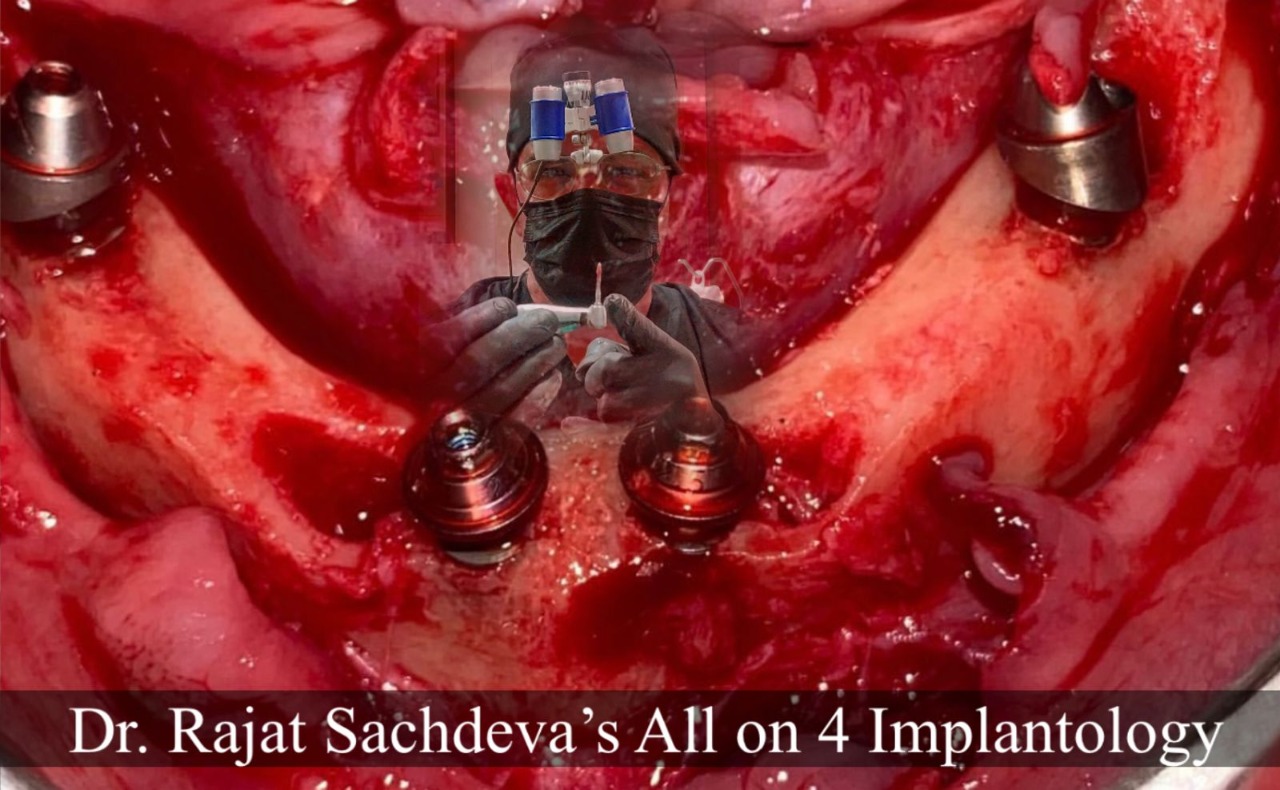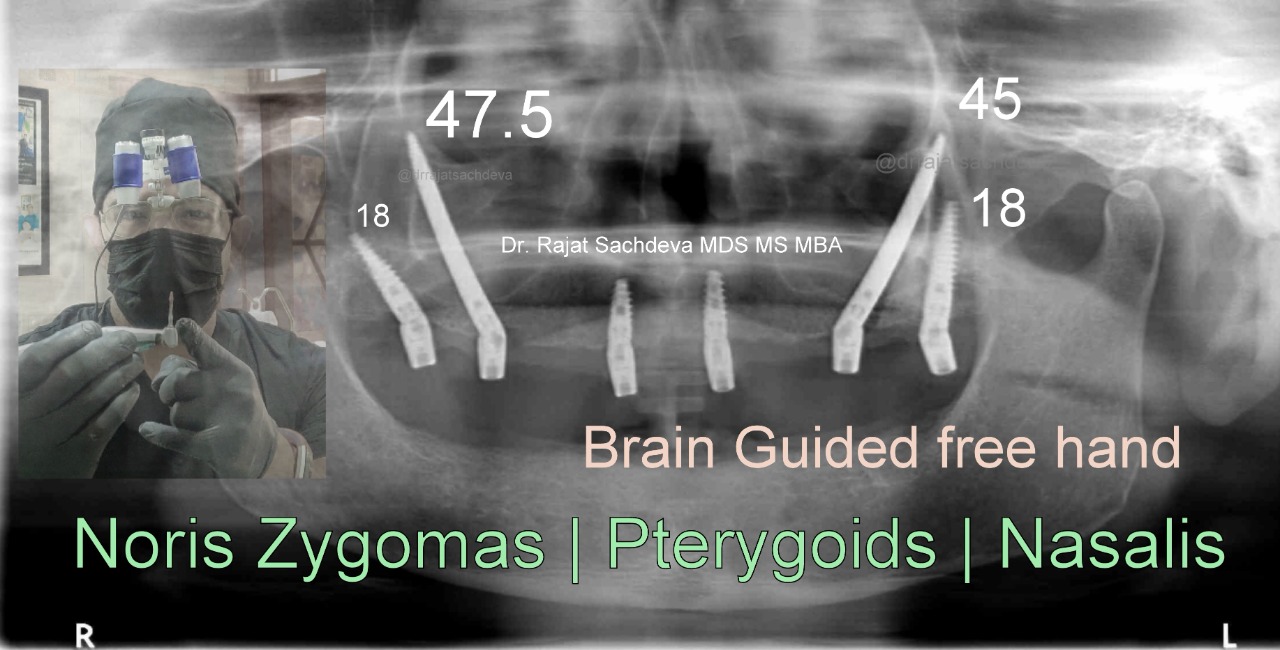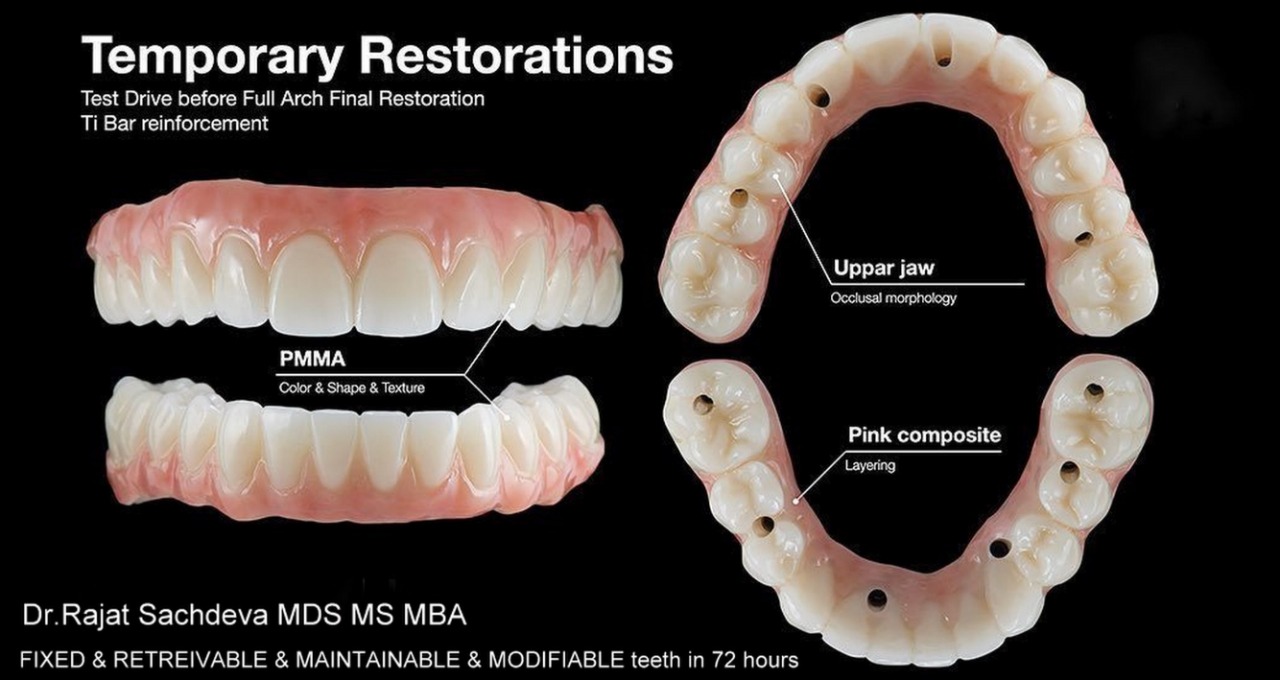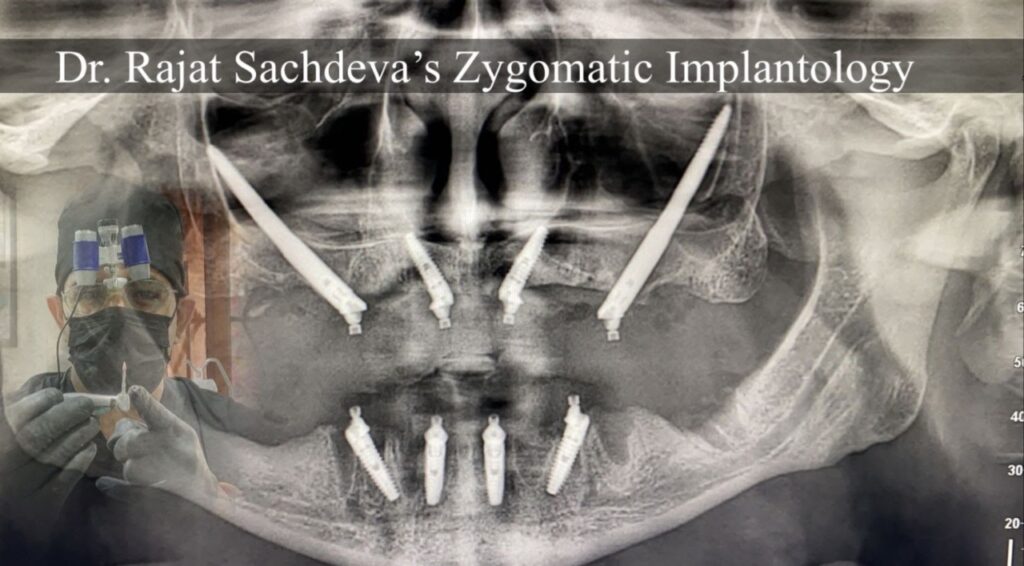
If you have been missing teeth, you may have heard about dental implants. Full mouth dental implants are one of the best rehabilitative option for edentulous arches. Although there are other alternatives available like removable complete dentures or fixed bridges, dental implants has numerous advantages and is most recommended all around the world. The popularity of dental implants is mostly attributed to two reasons – it is a “fit for all” option (suitable for every individual having missing teeth irrespective of their age and gender) and high success rates. Having mentioned this, full mouth rehabilitation is a complex and sophisticated procedure which is extremely technique-sensitive. It is therefore important for you to be vigilant while selecting your implantologist.
We, at Dr. Rajat Sachdeva’s dental institute believe in complete transparency with the patient about the treatment plans and associated cost, and encourage them to take an informed decision. Through this blog, we aim to educate our patients about everything that is to be known about dental implants.
What are dental implants?
To simply put, a dental implant is a titanium post or a screw which is inserted into the jawbone beneath the gum line by a surgery and it serves a tooth root. Once the screw is tightly adapted to adjacent bone (osseointegration), a crown will be attached on top of the implant to ensure the appearance of a natural tooth. Since they are fused and coherent with the bone, they not only function like your natural teeth but also look like them.
Implants can be inserted to replace either a single tooth or multiple teeth. Full mouth Implants replaces all the teeth in either or both jaws. Conventionally, as many as 6 or 8 implants are placed in the jaw to support a full mouth denture. However, the current modification of this technique, All-on-4® concept is becoming very popular where in the entire arch is rehabilitated on just 4 implants. This concept of replacing all teeth with full mouth implants is called Allon4® Concept. It is a long-lasting and effective treatment solution that provides permanent, fixed artificial teeth.
Advantages of dental implants
- Dental implants can be immediately put in function, thereby enhancing the quality of life
- Dental implants are called as “third dentition” as they feel and appear like natural teeth
- Dental implants are a fixed and permanent solution for your missing teeth
- The overall treatment and recovery time is reduced
- Dental implants is a suitable option for anyone, even with minimal bone width. This is especially useful in case of patients with severely resorbed maxilla where zygomatic and pterygoid implants can be used.
- hey provide excellent stability
- It is a cost-effective option for a full mouth rehabilitation
- The only rehabilitative option which gives a life-time guarantee and proven long term success rate.
- It is relatively easy to maintain.
Cost of full mouth dental implants in India
There are many important factors that can influence the cost of a dental implant procedure.
1. Quality of bone
When a patient visits the dental clinic for implants, the first and the foremost eligibility criteria that a dentist checks for is the quality of bone.
a. Abundant bone: If a patient has good amount of bone below the sinus area in the maxilla and above the inferior alveolar bone in the mandible, we call it as an abundant bone case. This is an ideal case and enhances the predictability of the implants. In such a scenario, 6 or 8 implants can be placed in each arch, over which a full mouth prosthesis can be fabricated.
b. Moderate bone: This is a relatively more common situation that we generally encounter. In this case, the patient’s bone height has reduced, more in the posterior region as compared to anterior which makes the stability of implant-supported prosthesis a bit challenging. Usually the dentist will recommend All-on-4 implants, where the entire denture will be supported on just 4 implants in each arch, 2 straight in the anterior segment and 2 tilted implants in the posterior region.
c. Severely resorbed bone: This condition is generally seen in patients who have worn their removable dentures for many years, leading to compromised bone height in the jaws. In such cases, due to the paucity of alveolar bone, the dentist will take support of basal bone like zygomatic and pterygoid bone to place implants.
The cost of All on 4, and zygomatic and pterygoid implants are higher and requires greater skill as compared to conventional 6/8 endosteal implants. It is quite evident that the better the quality of bone, the less will be the overall cost of your treatment.
2. Brand and type of implant
The implants can be either conventional implants or basal implants.
a. Conventional implants: Conventional implants are used to replace missing teeth. They look and feel like natural teeth. They are usually indicated in single, multiple, or full mouth implants to provide anchorage for fixed or removable dentures.
There are many companies and brands that manufacture implants and their cost varies significantly. Nobel Biocare® and Straumann® are world-renowned implant manufacturers from Switzerland with excellent quality and outstanding esthetics, and come at premium prices. Other brands like Osstem® (South Korea), Adin® (Isreal) and Dentium® (USA) also offer high quality implants at less expensive prices.
b. Basal implants: Basal implants are the innovative system of implantology which utilizes the basal cortical portion of jaw bones for retention of dental implants, which is designed to accommodate the basal cortical bone regions. It offers excellent quality of cortical bone for retention. These are usually single-piece implants with fused abutment and it minimizes the failure of implants. These implants are usually recommended when there is severely compromised bone or if immediate loading is required. It is also ideal for multi-unit restorations. This is a cost-effective option as compared to conventional implants.
3. Type of teeth fabrication:
The implant-supported prosthesis can be either direct teeth fabrication or screw-retained dentures.
Direct teeth fabrication is very rarely used by the dentist as it lacks the desired quality and strength. Although it is light on the pocket, any damage is difficult to repair and is esthetically unpleasing as well.
Screw-retained prosthesis is widely used and recommended by dentists. It is a costlier alternative, however offers many advantages like easy repair and more life-like appearance. The material of the screw-retained prosthesis also varies and can be fabricated using hybrid acrylic or ceramic. Ceramic dentures are more expensive as it requires a lot of labor and is technique-sensitive. However, it offers great benefits such as they are aesthetically pleasing and easy to maintain.
Having mentioned these factors, it is important to understand that the entire cost of the treatment suggested by the dentist includes the fee for surgery, lab work, armamentarium and other elements along with the type of implant. Additionally, these things can be deciphered only by a personal examination of the patient and CBCT evaluation by the dentist.
